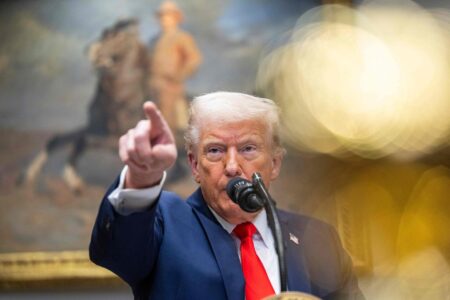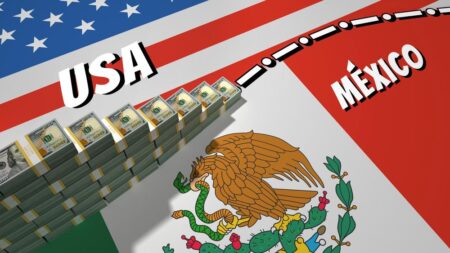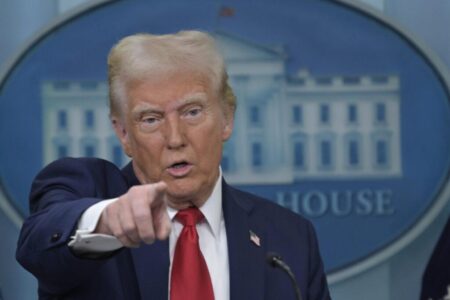As tariff negotiations persist, Canada is positioning itself as a formidable economic player, emphasizing resilience and strategic planning. Officials signal a commitment to long-term trade stability, hinting at a wait-and-see approach in resolving disputes.
Browsing: import/export
In a pivotal move, Donald Trump has pressured India to adjust its tariffs, declaring, “Whatever you charge, I‚Äôm charging.” This ultimatum marks a significant escalation in trade tensions, compelling India to reconsider its economic stance amid global trade negotiations.
In response to the lessons learned from the first trade war initiated by Donald Trump, China has adapted its strategies for navigating tariffs. By diversifying markets and enhancing domestic production, Beijing aims to mitigate the economic impact of renewed trade tensions.
India is grappling with economic uncertainty as escalating US tariff wars raise global concerns. The increasing trade tensions threaten to disrupt supply chains and impact key sectors, prompting calls for robust policy measures to safeguard India’s growth trajectory.
Despite President Trump’s decision to postpone tariffs on various imports from Canada for a month, Canada will maintain its own tariffs on U.S. goods. This development highlights ongoing trade tensions between the two nations as negotiations continue.
In response to U.S. tariffs imposed by the Trump administration, Canadians are strategizing innovative solutions to mitigate economic impacts. From diversifying trade partnerships to advocating local production, these efforts reflect a resilient spirit in the face of protectionism.
In response to escalating tensions in Trump’s trade war, Mexico, Canada, and China swiftly implemented new tariffs on U.S. goods. This retaliatory measure underscores the growing economic strain and uncertainty surrounding international trade relations.
Lindt has announced plans to supply chocolate to Canada from Europe, aiming to avoid tariffs that increased costs for importing goods. This strategic move underscores the company’s efforts to maintain competitive pricing amid international trade challenges.
The Associated Press reports that Trump’s tariffs on Mexico, Canada, and China target a range of goods, including agricultural products, electronics, and vehicles. This trade policy aims to bolster domestic industries but risks escalating tensions and consumer prices.
In a recent commentary, CNBC’s Lutnick suggested that President Trump may announce a reduction of tariffs on Canada and Mexico as early as Wednesday. This potential shift could reshape trade relations and impact key industries in both nations.
Mexico is considering the implementation of new tariffs on Chinese goods as a strategic move to mitigate potential threats from former President Trump. This response highlights Mexico’s shifting trade dynamics and the ongoing tensions between global economic powers.
As the Trump administration implemented tariffs, numerous Canadian companies found themselves heavily dependent on American sales to mitigate the impact. This article explores the top 10 Canadian firms navigating this complex trade landscape, revealing their strategies and challenges.
In a recent statement, former President Donald Trump reaffirmed that tariffs on imports from Mexico and Canada are on track to be implemented. This move aims to bolster domestic industries but raises concerns about potential trade tensions in the region.













